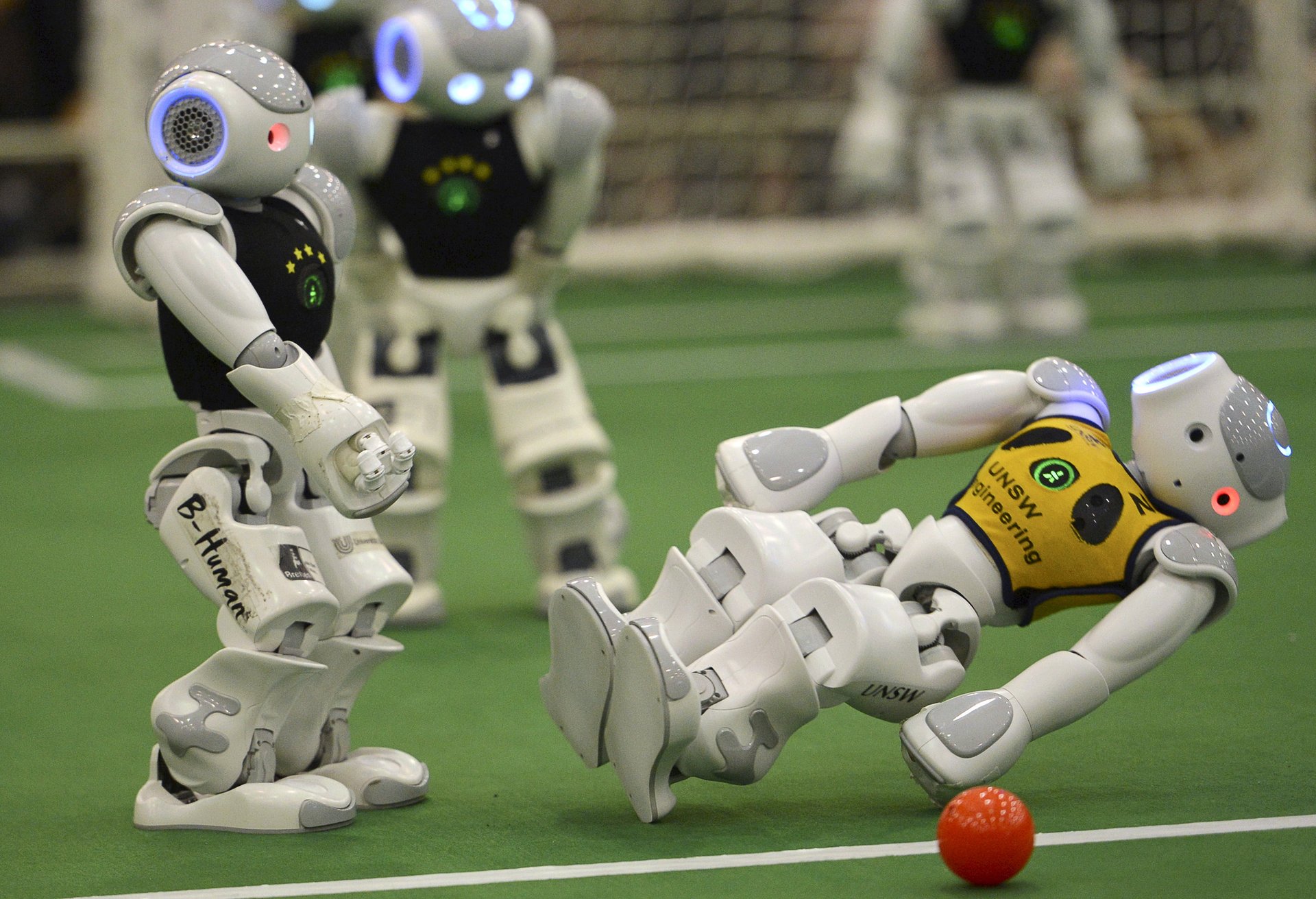Japan has just won the World Cup—of robot soccer
The Japanese are now soccer world champions. Robot soccer champions, at least.
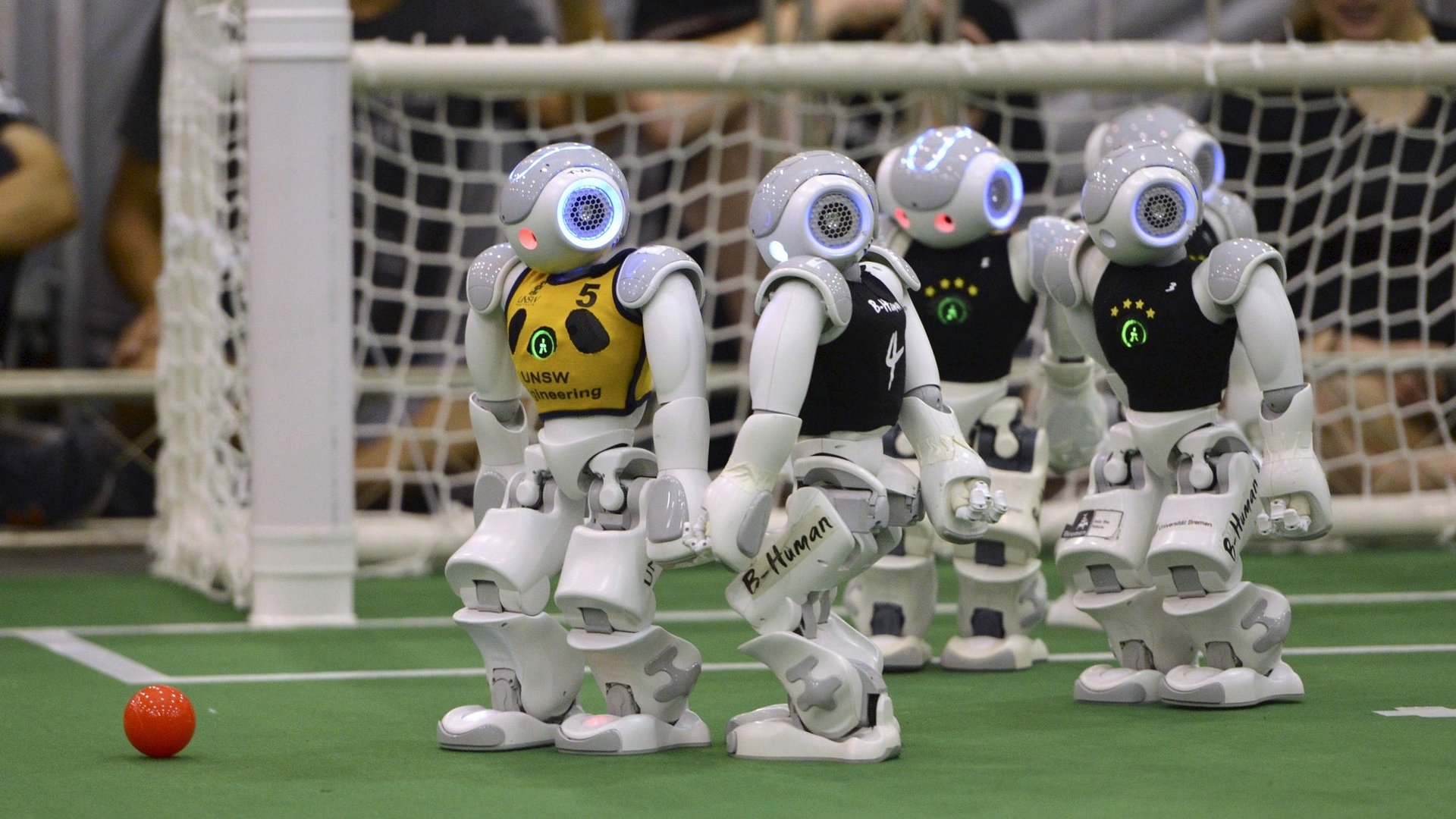

The Japanese are now soccer world champions. Robot soccer champions, at least.
Some of the most advanced soccer players in the world convened in central China to compete in a grueling competition, with the eyes of the world on them. Well, their computer brains are advanced, but their soccer skills are not. The city of Hefei hosted the 2015 robot world cup, or RoboCup, which has been running since 1997. A Japanese team from the Chiba Institute of Technology just beat a Chinese team from Zhejiang University in a thrilling 1-0 match to take the title of RoboCup champions.
The aim of the competition is to “promote robotics and AI research” using the world’s most popular sport, according to the organizers’ website. RoboCup also hopes to produce a team of autonomous robots that could beat a World Cup-winning team of human soccer players within the next 50 years.
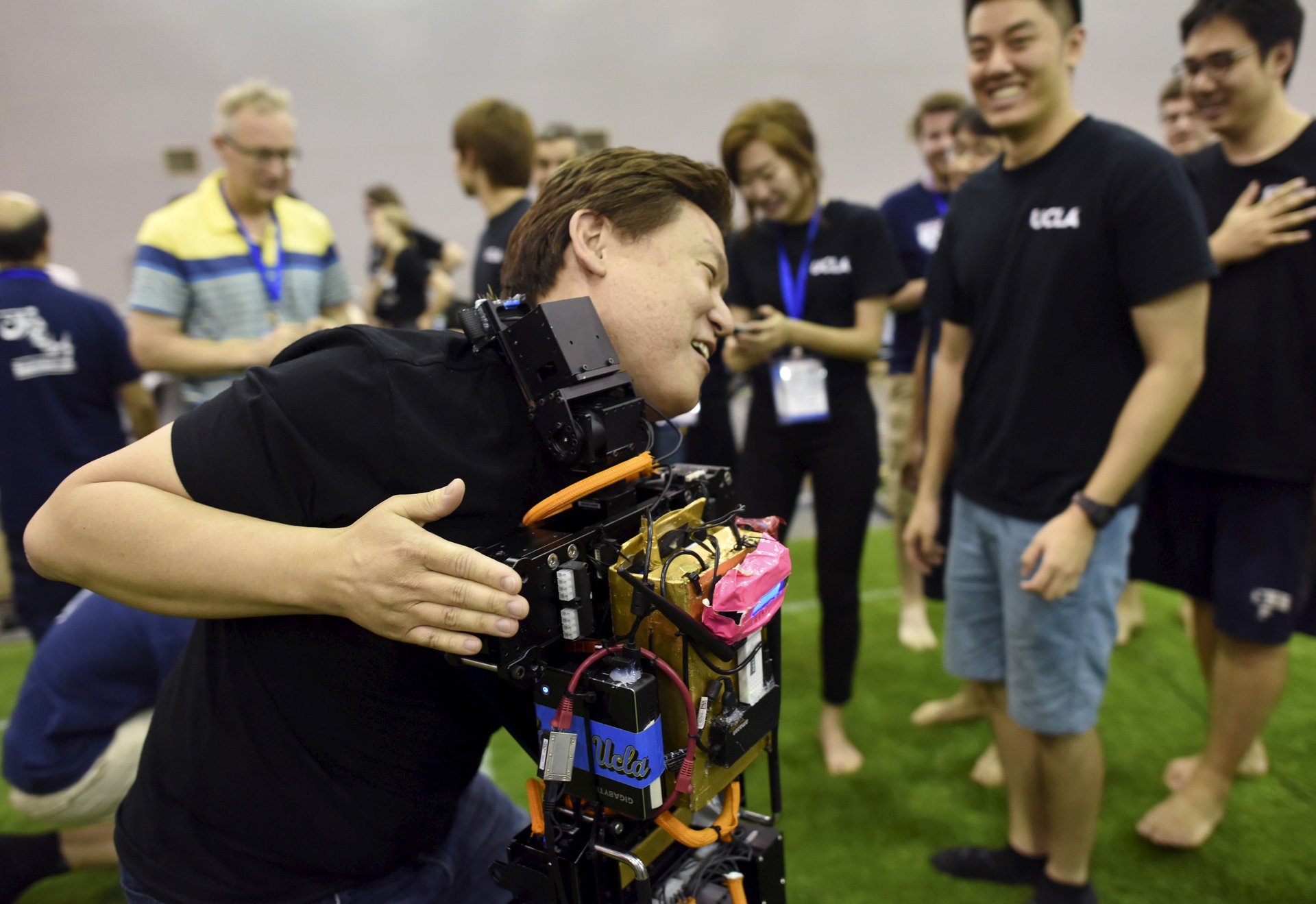
That goal seems a bit lofty, seeing as many of the teams’ robots still struggle to kick a ball without falling over. But the organizers are quick to point out it only took about 50 years to go from the first flight to the Apollo space program, and from the first digital computer to one that could beat a human in chess. So there’s hope for these robot athletes yet.
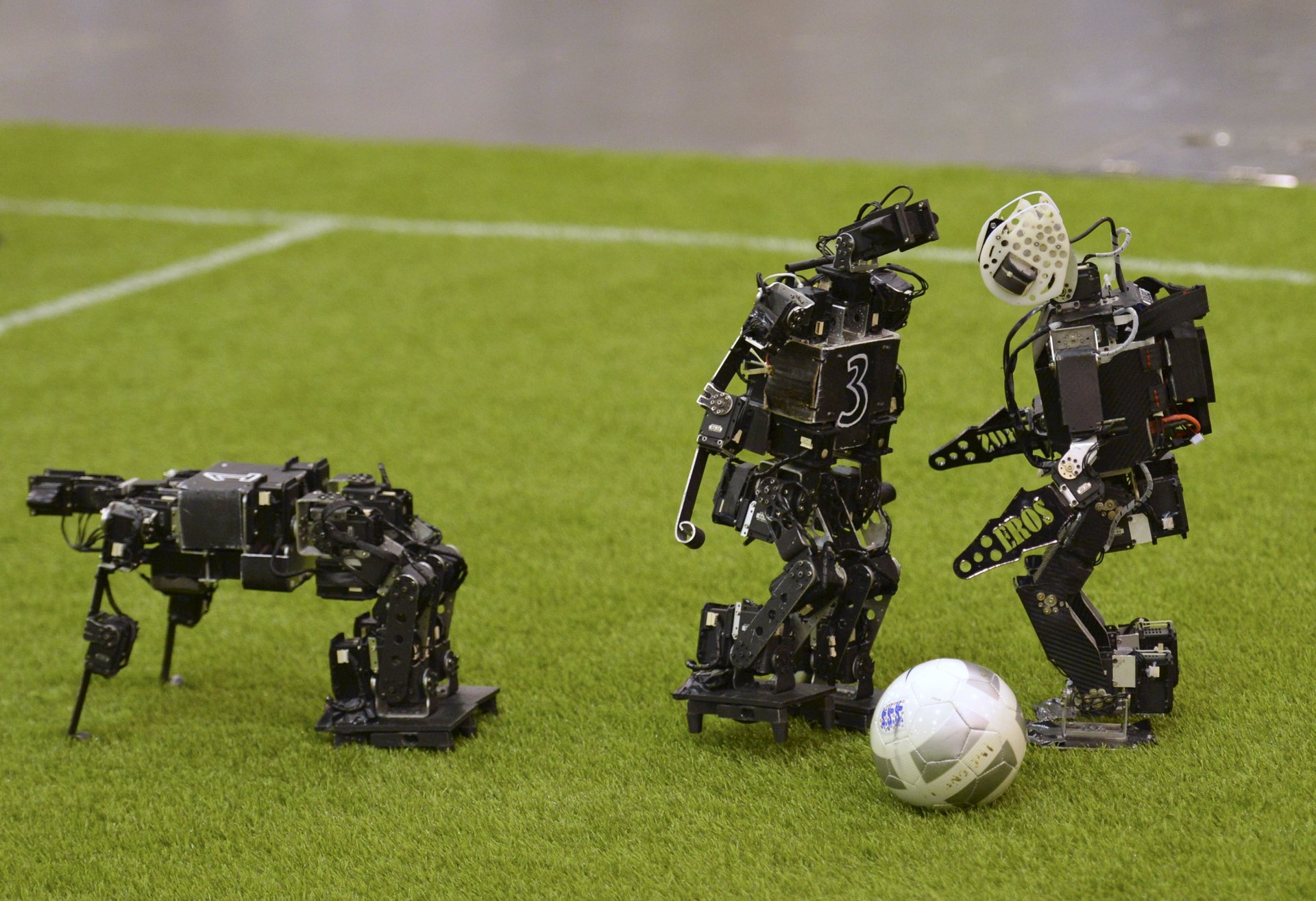
The yearly competition is broken out into multiple leagues, for humanoid and non-humanoid robots of various sizes, with over 500 teams competing from 45 countries. The robots range in size, from bathroom-trashcan-sized to child-sized. The teams of robots are all autonomous, feeding information back to their human coaches, but not receiving any tactical tips from them. Each match also has a referee, but they’re pretty lenient on fouls, seeing as the robots are about as likely to kick each other as they are the ball.
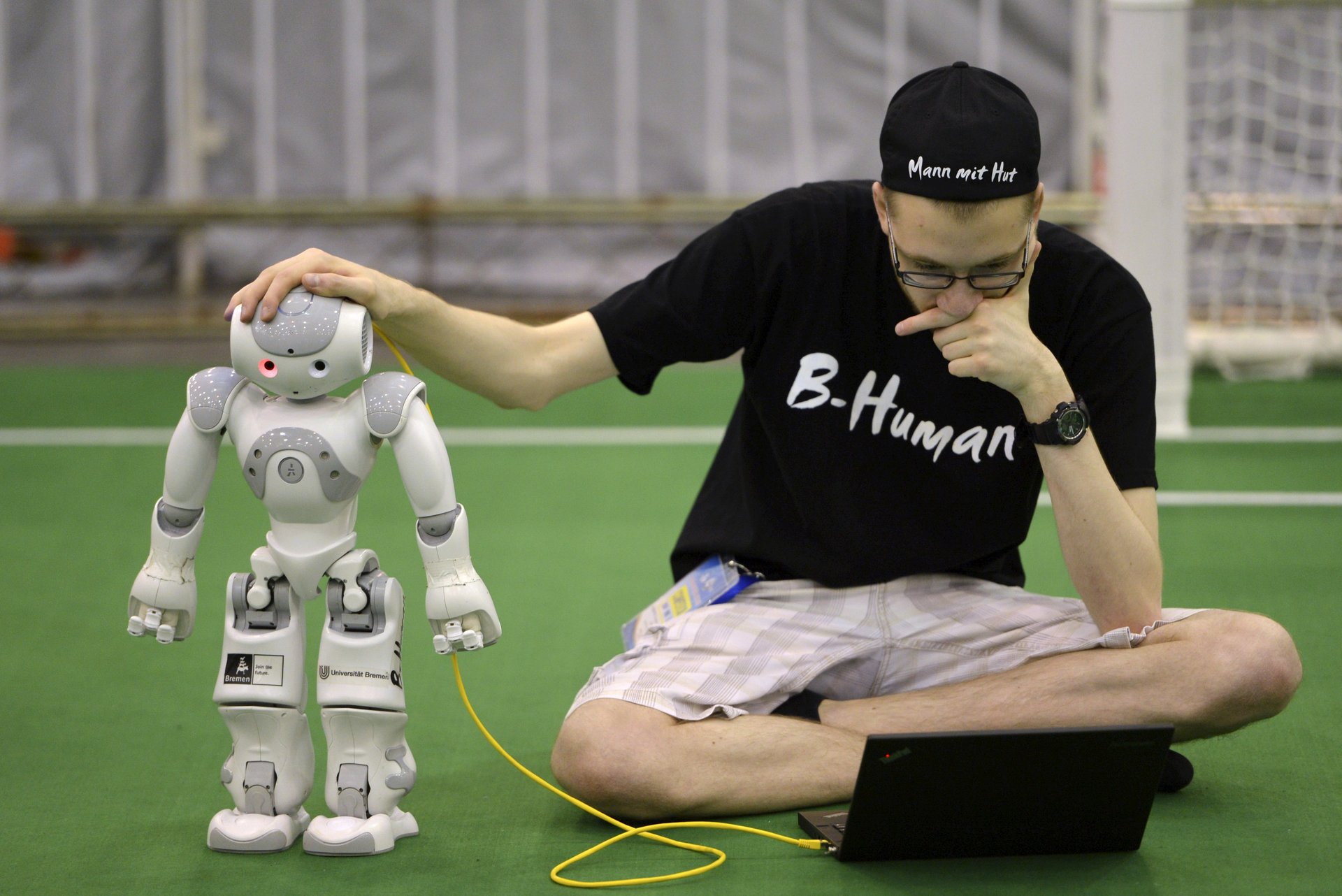
In keeping with the decades-old English human tradition of coming up short in agonizing fashion, the Bold Hearts team from the UK were runners-up in last year’s competition in Brazil, and have failed to score in any of their matches this year, the BBC reports. In past years, the humanoid robots have played with a red ball, but this year saw the introduction of a white ball, which is much harder for the robots to see against the green astroturf. Bold Hearts pegged their goalless effort on stability issues resulting from falling over trying to find the new ball, rather than “high level defensive tactics.”
Assuming robots haven’t marched on to world domination by the 2050s, we may have quite a game to watch. Who knows if robots prefer the silky tiki-taka style of the Spanish, or perhaps if they achieve singularity, we’ll see a team that can really play total football better than the Dutch.
Hopefully as they master the beautiful game, they don’t take to diving as we have, though it seems they’re already on their way.
